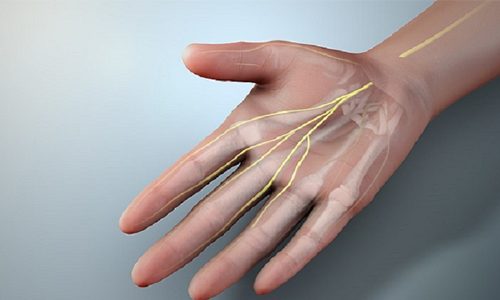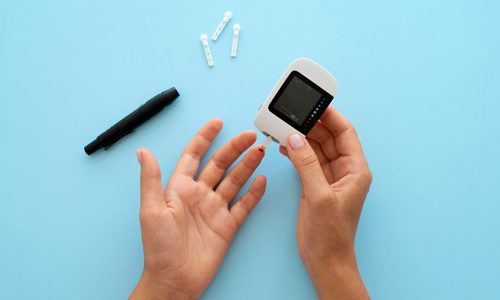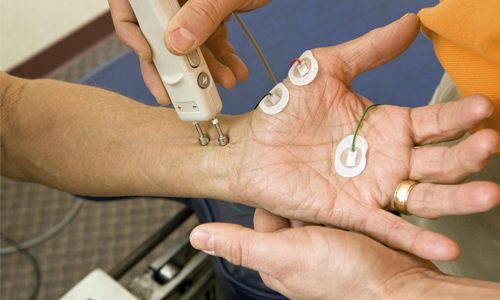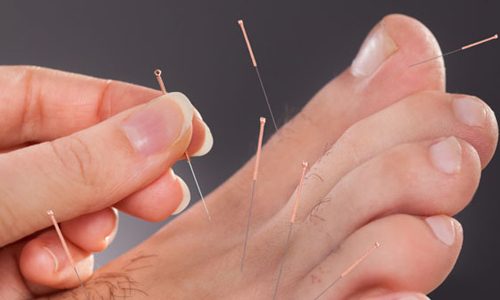Table of Contents
What is Diabetic Neuropathy?
Diabetic neuropathy is a type of nerve damage that occurs in people with diabetes. It is a long-term complication of diabetes. Diabetic neuropathy develops gradually and worsens over time. It can affect the nerves in different parts of the body, such as the feet, and internal organs like the heart, bladder, and intestines. It is a pretty serious health issue that must be addressed as soon as possible.
The condition is widely found among diabetics because high blood sugar levels directly affect the nerves in such people. However, there are ways to combat this condition, such as the following:
- Healthy diet
- Proper glycemic control
- Regular exercise
Talking about exercise, take a look at the 5 exercises for improving lower back strength.
Types of Diabetic Neuropathy
The four main types of neuropathy that impact the nervous system are:
1. Autonomic Neuropathy
It is the damage to the nerves that are involved in carrying information to the glands and organs in the body. Recent research indicates that autonomic neuropathies can occur alongside or independently, and the autonomic reflex screen is a validated tool for assessing sympathetic postganglionic, cardiovascular sympathetic noradrenergic, and cardiac parasympathetic responses.
2. Peripheral Neuropathy
It’s one of the most common types of neuropathy, which damages the nerves in the hands and feet. It can either be sensory neuropathy, motor neuropathy, or both.
3. Proximal Neuropathy
It is a pretty rare type of neuropathy that damages the nerves in the hip, thigh, or buttocks. Found to be more common in men than in women, it usually affects one side of the body.
4. Focal Neuropathy
It’s a condition where damage is caused to a single nerve. This type is less common than autonomic or peripheral neuropathy. It can affect a nerve in the head, hand, or torso.
What Causes Diabetic Neuropathy?
High blood sugar levels can harm the body in several ways. One of them is the damage done to the tiny blood vessels, which supply the nerves with oxygen and other nutrients. Therefore, the nerves have inadequate oxygen and nutrients, which hampers their ability to function properly. Thus, it’s crucial to manage your blood sugar levels.
Here are 7 things that raise your blood sugar.
Symptoms of Diabetic Neuropathy
The symptoms may vary from one person to another, depending on the extent of damage to the nerves. Some may experience just mild symptoms, whereas others may find it highly painful or disabling. Some of the symptoms of the condition are listed below.
- Loss of sense of touch
- Burning sensation in the legs and feet
- Numbness or pain in hands and feet
- Dizziness
- Feeling full sooner than usual
- Weakness in the muscles
- Bladder problems
- Trouble in vision
- Decreased or excessive sweating
Complications Resulting from Diabetic Neuropathy
In addition to the above symptoms, diabetic neuropathy can result in more severe complications, which include the following.
Digestive Issues
If nerve damage happens in the digestive tract, it can result in constipation or diarrhea. A more complicated problem that arises because of nerve damage in the digestive tract is “gastroparesis.” In a person experiencing this condition, the stomach might empty very slowly, or it might not become empty at all, which can lead to various other health issues like bloating.
Here are some tips to reduce bloating.
Poor Control of Body Temperature
Nerve damage can lead to dysfunctional sweat glands, which in turn results in poor body temperature regulation.
Urinary Problems
In some types of diabetics, the nerves controlling the urinary bladder get damaged. This can lead to urinary problems, such as urinary tract infections or incontinence. Researchers at UT Southwestern Medical Center have demonstrated the long-term effectiveness of electrofulguration, a minimally invasive outpatient procedure for treating chronic urinary tract infections in postmenopausal women.
Can Diabetic Neuropathy Be Prevented?
Yes, it can be prevented. To do that, individuals with diabetes should maintain their blood sugar levels by monitoring their readings regularly. The medication or shots they take must be administered at the right times without fail.
Management of blood cholesterol and blood pressure is also crucial in preventing diabetic neuropathy. Once the nerves are damaged, the condition cannot be reversed. However, further damage can be prevented with adequate treatment and guidance from the doctor. In other words, an individual having the condition can try to reduce the intensity of their symptoms with regular medication, proper diet, and regular exercise (from their doctor or healthcare provider).
Always remember that prevention is better than cure when it comes to any illness or disorder. So, people with diabetes need to be cautious about their lifestyle choices.
Foot Diabetic Neuropathy Treatment
Since diabetic neuropathy can often affect the feet, people with diabetes must take care of their feet properly. Here, we explain some treatment options for foot diabetic neuropathy.
1. Pain Management
Medications, such as over-the-counter pain relievers (e.g., acetaminophen) or prescription drugs (e.g., gabapentin, pregabalin) may be used to alleviate the pain associated with foot diabetic neuropathy. Topical treatments like lidocaine patches or capsaicin creams may also provide some relief.
2. Foot Care
Proper foot care is essential in preventing complications and managing symptoms. Taking good care of your feet includes the following measures.
- Washing and drying the feet thoroughly
- Wearing comfortable and well-fitting shoes
- Avoiding activities that may cause foot injuries
Also read: Home remedies to get rid of corns on feet!
3. Physical Therapy
Exercises and physical therapy techniques can help improve strength, balance, and coordination in the feet and legs. These therapies may also help relieve pain and enhance overall mobility.
4. Transcutaneous Electrical Nerve Stimulation (TENS)
TENS therapy involves using a small, battery-powered device that delivers mild electrical impulses to the affected area. This can help reduce pain and discomfort associated with diabetic neuropathy.
5. Alternative Therapies
Some individuals find relief from complementary approaches, such as acupuncture, massage therapy, or biofeedback. While their effectiveness may vary, these treatments can be considered in conjunction with traditional medical approaches.
It is important to note that the specific treatment plan for foot diabetic neuropathy should be tailored to the individual’s needs and coordinated with a healthcare professional specializing in diabetes management or neurology.
When to See a Doctor?
Call your doctor or healthcare provider if you notice any of the following:
- Any change in your digestion, sexual, or urination functions
- Weakness or burning sensation in your feet or hands
- A cut in your foot that is taking a long time to heal
According to studies, at least 50% of individuals with diabetes develop diabetic neuropathy. However, effective glucose control can halt the progression of diabetic neuropathy in patients with type 1 diabetes, though the effects are more modest in those with type 2 diabetes.
This study from the National Library of Medicine explains the above effects of diabetic neuropathy. You might find it interesting.
Bottom Line
As stated earlier, prevention is better than cure. So, be very cautious if you have diabetes and try to prevent diabetic neuropathy. In case you have got it already, don’t fret. Consult your doctor and discuss with them the right course of action to be taken. With a proper lifestyle and medication, you can minimize the problems that this condition causes.




































